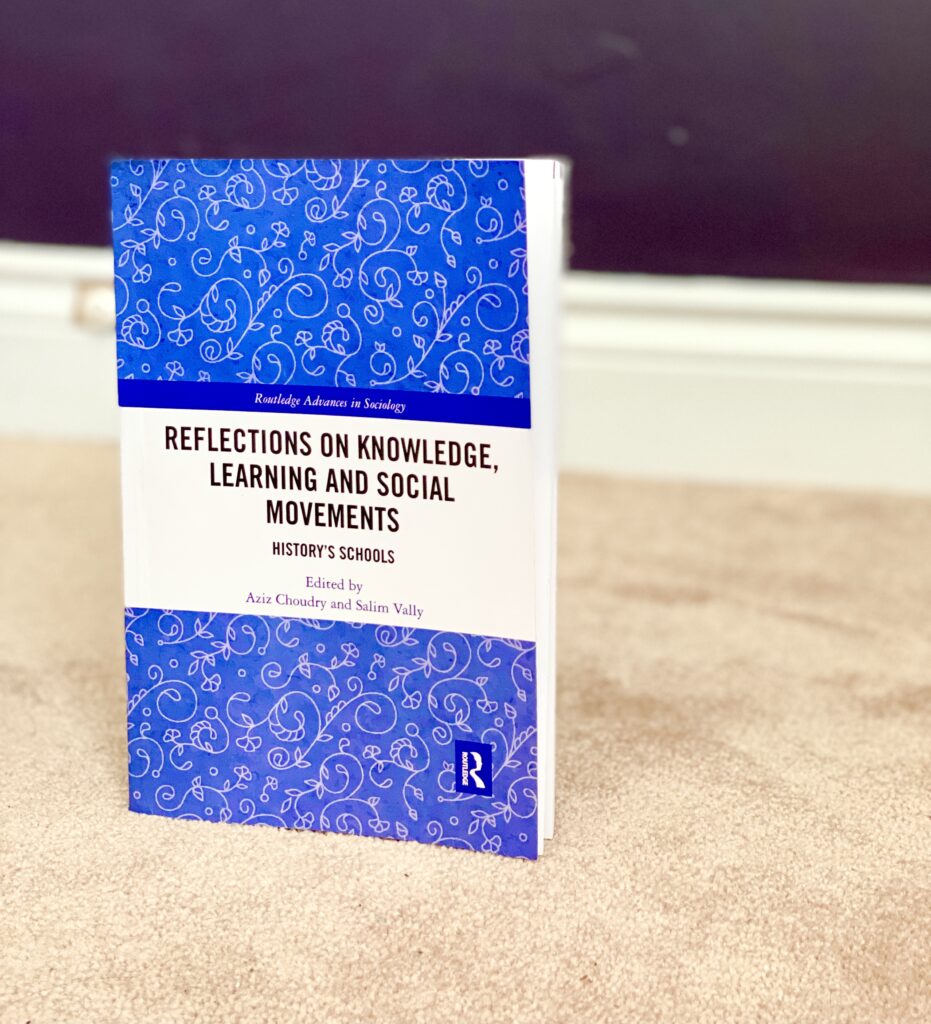
Scholarly. Edited collection. Pieces from a range of authors examining how people in different social movements and communities-in-struggle have engaged with material and ideas from earlier movements and made use of them in political education and struggle in the present. Read it because I thought it might be useful to something I’m working on. Turns out, it isn’t really. But I don’t mind that in the slightest, because it was a really interesting read – there were maybe a couple of chapters towards the end that were drier and a bit more removed from movements, but most were engaging and clearly produced by people who are or have been directly involved and whose work is oriented towards what might be of use to movements. I appreciated the piece from a university-based left historian in Argentina about his decades of doing popular historical education with workers, the fascinating account of student militance in Iran in the ’70s organized around a copy discovered years later on a different continent of a radical student journal from those years that had been suppressed by the state, the very critical Indigenous take on the UN process that led to the United Nations Declaration on the Rights of Indigenous Peoples, two complementary histories of Ethnic Studies/Black Studies in the US (including one by Robin Kelley), an account of political education in the context of the Palestinian national liberation struggle, and a number of really interesting pieces looking at elements of struggle in South Africa both before and after the end of apartheid. Obviously a niche kind of book, but I read it eagerly in a way that I seldom do with edited collections, even edited collections on themes I’m broadly interested in. And it is relatively rare (at least in my experience) and additionally interesting for its international focus on struggles among colonized or formerly colonized peoples.
So those are my feelings about what the book says. In contrast, I have quite different feelings and some perhaps harsh things to say about the actual physical manifestation of the book. I mean no disrespect to the editors or the contributors – as I’ve said, I like their work and I admire their politics, and I appreciate that the pressures of life in the academy can sometimes mean making hard choices. But this book, released by a for-profit academic publisher (Routledge), while far from the most expensive book from them or similar publishers I have ever seen, still cost about twice what you’d pay for a book from your average university press and three times what you’d pay for a lot of trade paperback nonfiction from a commercial press. I only bought this because of its possible relevance to my own work, otherwise I would never do so. Obviously, privilege of various flavours was why I even had that choice. No non-academic library will ever stock this book. Probably most university libraries won’t either, unless it ends up on a course at their institution. So…I enjoyed this book and its commitment to thinking about how movements engage with and mobilize knowledge, but I can’t imagine how this book itself, given what I’ve just described, will be able to do much out in the world that will be of use to movements, because hardly anyone will be able to read it. Which is sad. And not only that, the book-as-object is just really poorly put together – a relatively cheaply made trade paperback that wasn’t even cut properly, so I had to use a knife to slice apart several dozen pages near the beginning of the book. Again, I don’t blame the editors or contributors – I do blame the neoliberal academy and the parasitic for-profit publishing industry that has found ways to make money from it while keeping important knowledge largely inaccessible.
Originally posted by Scott on Goodreads.